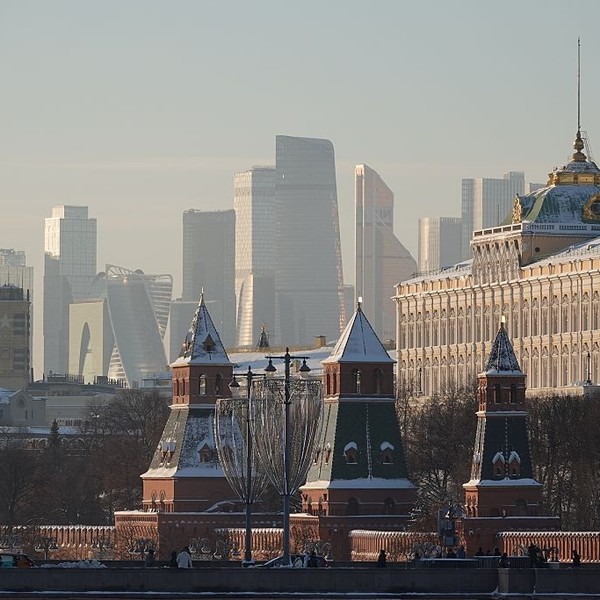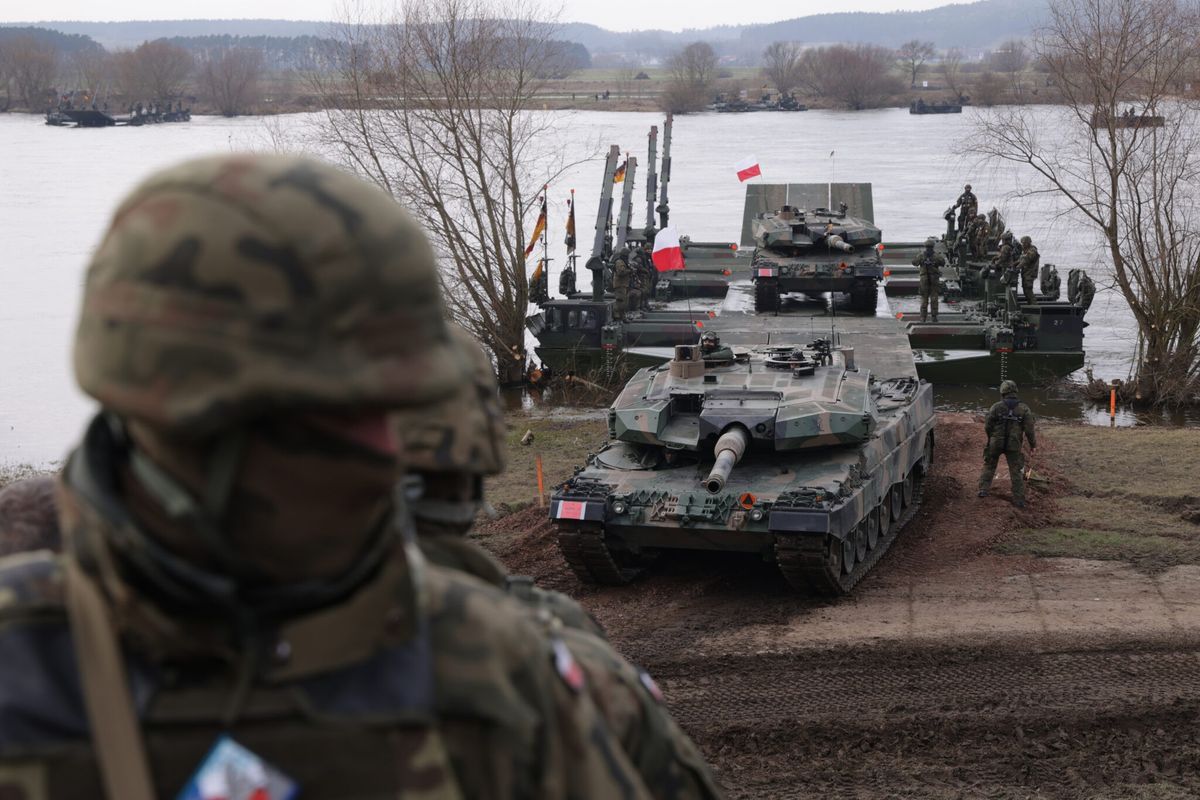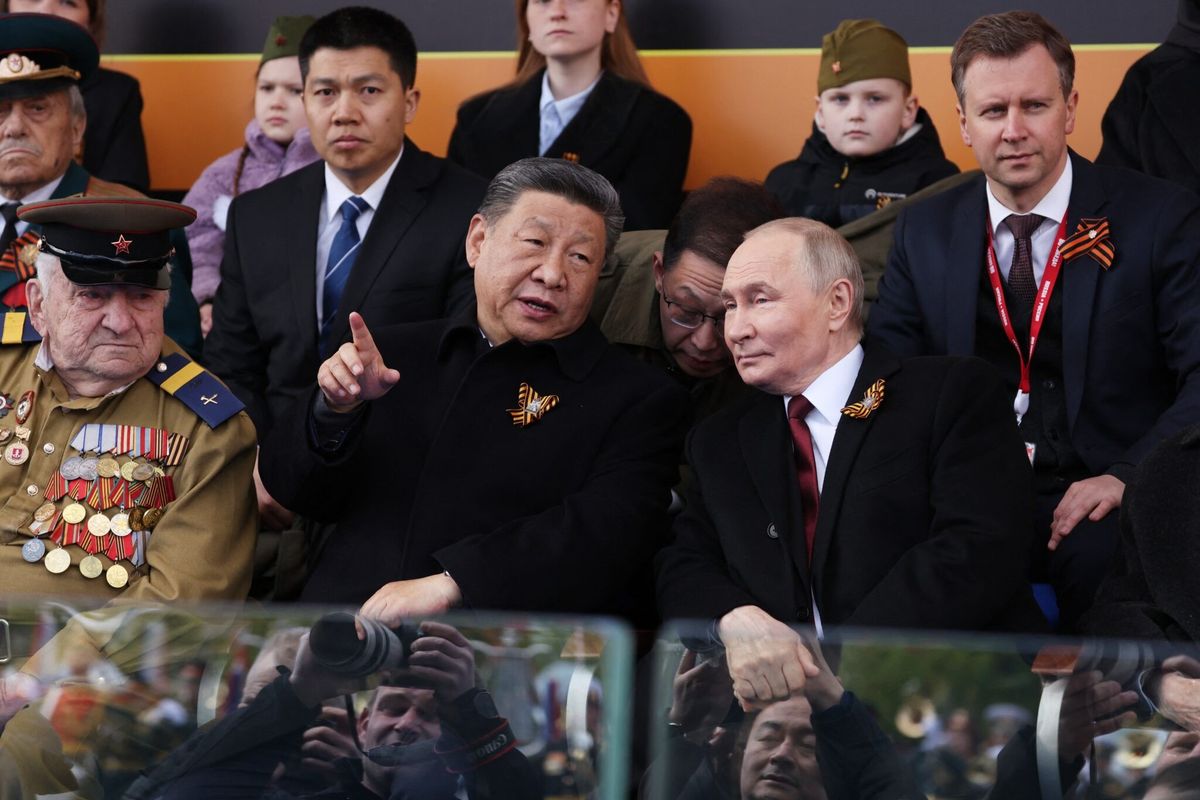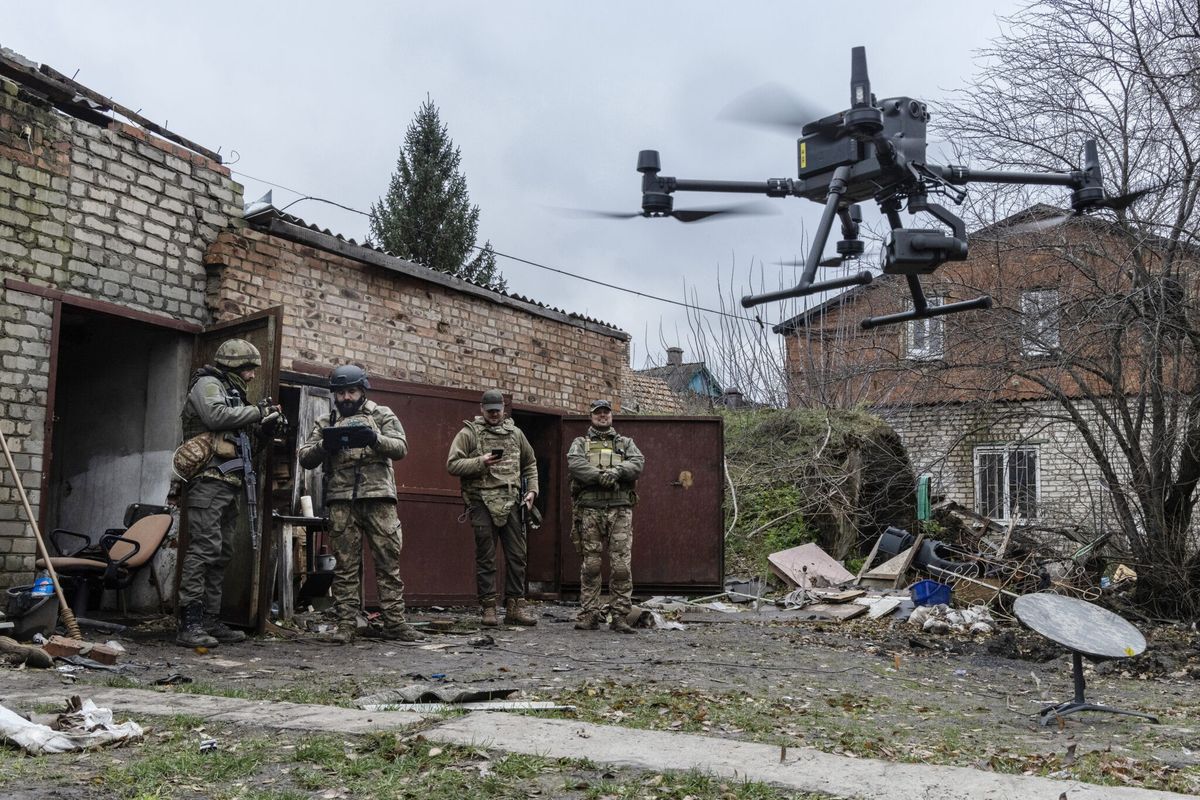OPINION — “The most important domain is space. Space is the critical domain because it enables all terrestrial advantage. And that’s what leads to top-down ubiquity…and across all domains. So if you’re flying, if you’re on the surface of the Earth, if you’re at sea on the surface of the ocean, then you’re going to be seen, eventually, so it puts – it translates the modern fight into one of hiders and finders, right? And who can do that better will win.”
That was Adm. Christopher Grady, vice chairman of the Joint Chiefs of Staff, at the Center for Strategic and International Studies (CSIS) last Tuesday, speaking about the Defense Department’s “warfighting concepts.”
For the past week, it seems, a lot of U.S. officials have been talking about looming dangers in outer space.
The day after Grady spoke, Assistant Secretary of Defense for Space Policy Dr. John F. Plumb told the House Armed Services Subcommittee on Strategic Forces, “The space domain is critical to U.S. national security and essential to all four of our National Defense Strategy’s top priorities. Our Joint Force relies on space-based services every day to conduct operations and to protect the Joint Force from space-enabled attack.”
We cannot be reminded too many times about how important space has become, and how America’s dependence upon it keeps growing. At the same time, there needs to be a realization of how fragile our protection of space assets has become.
Plumb went on to say, “Our primary means of deterring in space will be through resilience,” pointing out that “in April 2023, the [Defense] Department launched the first 10 satellites of the Proliferated Warfighter Space Architecture, followed by an additional 13 satellites five months later.”
“But,” Plumb said, “resilience alone is insufficient to provide mission assurance or to deny adversaries’ uncontested use of space in conflict.” He added that “to ensure that our potential adversaries are unable to rely on their space systems…the United States may leverage counter-space options across all operational domains if necessary.”
Plumb described “Tactically Responsive Space” capabilities to support integrated deterrence, including a new mission, Victus Haze, an imaging satellite that could be quickly launched to inspect an object in orbit. Its demonstration test is scheduled for 2025.
But given events last week and this weekend, I want to note another U.S. concern - namely, the possibility that Russia may put a nuclear weapon in a satellite orbiting in space and the potential danger it would present to other satellites.
Russian nukes in space?
A nuclear weapon detonated in space can create an electro-magnetic pulse (EMP) that has the potential to destroy the electronic circuits of other commercial, civil and military satellites. Back in the late 1950s and early 1960s, at the height of the Cold War, both the Soviet Union and the U.S. experimented with exploding nuclear weapons at high altitudes based on the idea the resultant EMP would destroy electric circuits in warheads from an enemy’s incoming ICBMs.
The main U.S. high-altitude test took place on July 9, 1962, and was called “Starfish Prime.” It was detonated 19 miles southwest of Johnston Island in the northern Pacific at an altitude of 250 miles. At least eight satellites that were in orbit at that time were damaged by the EMP created by the explosion, which also caused electrical damage in Hawaii, about 900 miles away, knocking out about 300 streetlights, setting off burglar alarms, and damaging a telephone microwave link which halted calls from Kauai to other Hawaiian Islands.
The idea that Russia might be developing such a weapon first became public last February when House Intelligence Committee Chairman Rep. Mike Turner (R-Ohio) warned of a “serious national security threat” from a secret Russian capability. That led to White House spokesperson John Kirby saying on February 15 that Russia was pursuing a space-based weapons capability that was “troubling,” though he stressed that it could not “be used to attack human beings or cause physical destruction here on Earth.”
Russian President Vladimir Putin denied any such weapon was being developed.
However, on April 24, National Security Advisor Jake Sullivan repeated the claim. “The United States assesses that Russia is developing a new satellite carrying a nuclear device,” Sullivan said, after Russia vetoed a U.S./Japan-sponsored Security Council resolution that would have reaffirmed the fundamental obligation of states under the Outer Space Treaty not to place nuclear weapons in Earth’s orbit.
Last Tuesday, appearing before the House Armed Services Committee, Defense Secretary Lloyd Austin said, in response to a question, “We think it’s irresponsible for anybody to even consider deploying or employing a nuclear device in space,” and the detonation of such a weapon “would have devastating consequences on a lot of our capabilities in space – not only our capabilities but the capabilities of other countries.”
In his prepared statement to the House subcommittee, Plumb expanded on what U.S. government officials had publicly disclosed about the Russian program. “Russia is also developing a concerning anti-satellite capability related to a new satellite carrying a nuclear device that Russia is developing,” Plumb said. “This capability could pose a threat to all satellites operated by countries and companies around the globe, as well as to the vital communications, scientific, meteorological, agricultural, commercial, and national security services we all depend upon.”
In answer to a question, Plumb added that should that satellite-carried nuclear weapon be detonated, the result “doesn’t have a national boundary, doesn’t discriminate between military satellites or commercial satellites.”
Asked if Russia had the capability to launch such a device now, Plumb said, “It is not imminent that we have to worry about it right now, but we are concerned about it. The department and the entire administration, and I know this Congress is taking this deadly seriously.”
Then, last Friday at CSIS, Assistant Secretary of State for Arms Control, Deterrence, and Stability Mallory Stewart picked up where Plumb had left off. “The United States is extremely concerned that Russia may be considering the incorporation of nuclear weapons into its counter-space programs based on information we deem credible,” Stewart said. “The United States has been aware of Russia’s pursuit of this sort of capability dating back years, but only recently have we been able to make a more precise assessment of their progress.”
Pause for a moment and realize that again the U.S. is giving away intelligence about Russia it has gathered – but not its sources or methods – much as it did prior to Putin’s invasion of Ukraine, in hopes of deterring Moscow’s action.
Stewart went on to say that Russia has claimed its activities are for scientific purposes, but that “the orbit is in a region not used by any other spacecraft — that in itself was somewhat unusual. And the orbit is in a region of higher radiation than normal lower Earth orbits, but not high enough of a radiation environment to allow accelerated testing of electronics as Russia has described the purpose to be.”
As a result, Stewart said, “Our analysts assess that a detonation in a particular placement in orbit of a magnitude and location would render low-earth-orbit unusable for a certain amount of time.”
Because of this collected intelligence, the U.S. decided to go to the Security Council and make its thus far unsuccessful effort to reinforce the Outer Space Treaty.
The fact that China abstained from voting on the U.S./Japan-sponsored resolution led Stewart to say, “We agree with the need to reinforce and to build upon the structure of the Outer Space Treaty, and they [the Chinese] appreciate the prevention of an arms race in outerspace.”
While Russia wants to prohibit weapons in outer space, Moscow’s approach, Stewart said, was to do it “without the definition of ‘weapon.’” Instead, it left out earth-based weapons that could be used against satellites in space.
Stewart said she did not “have an answer” for how close the Russians are to deploying a nuclear counter-space weapon, but added, “The more important question is how we can work to prevent that…It would affect everyone including China and India and Russia’s own satellites.”
Yesterday, at the U.N. General Assembly debate on the issue, Amb. Vasily Nebenzya, the Permanent Representative of Russia, explained that the resolution attempted “to introduce new restrictions through the Security Council that were not previously established in any international instruments.” and could have had “far-reaching consequences” for disarmament processes.
The Outer Space Treaty’s Article IV states: “States Parties to the Treaty undertake not to place in orbit around the Earth any objects carrying nuclear weapons or any other kinds of weapons of mass destruction, install such weapons on celestial bodies, or station such weapons in outer space in any other manner.”
U.S. Amb. Robert Wood, the Deputy U.N. Permanent Representative, explained that the vetoed resolution had urged U.N. Member States not to develop nuclear weapons specifically designed for deployment in orbit.
The U.S./Japan-sponsored Security Council resolution in effect added legally-binding instruments and appropriate, effective provisions for verification to the Outer Space Treaty. That’s probably what the Russians considered “new restrictions.”
The Cipher Brief is committed to publishing a range of perspectives on national security issues submitted by deeply experienced national security professionals.
Opinions expressed are those of the author and do not represent the views or opinions of The Cipher Brief.
Have a perspective to share based on your experience in the national security field? Send it to Editor@thecipherbrief.com for publication consideration.
Read more expert-driven national security insights, perspective and analysis in The Cipher Brief














